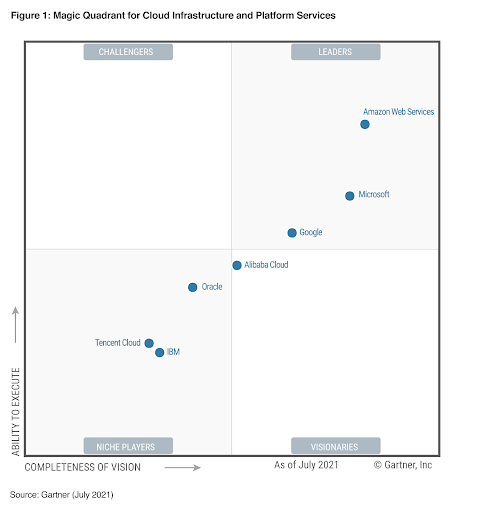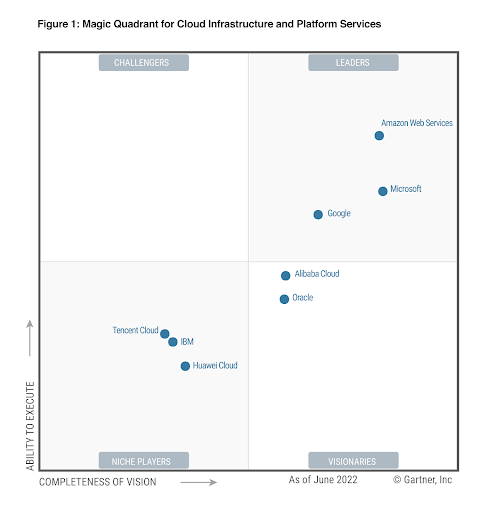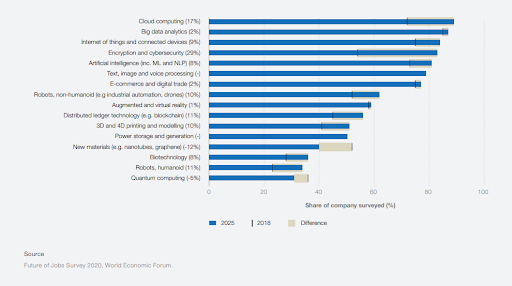In this ever-evolving age of science and technology, cloud computing has emerged as a trailblazer that has made a significant impact on IT systems by offering a welcoming atmosphere to its users through a variety of services like SaaS, PaaS, and IaaS.
With such a diverse array of service offerings, the adoption of this new technology by several businesses has become quite frequent. As interest in cloud computing continues to expand, one thing is certain, cloud computing is here to stay. Is cloud computing truly the future of tech? Let’s explore!
What is Cloud Computing?
The availability of self-service and on-demand computer resources without the user’s participation is called cloud computing. Servers, networking, databases, software, and data storage are some examples of said resources.
While we could store files on local storage or traditional databases, cloud-based storage allows us to store these files on a remote database; the cloud. As long as a device can access the internet, it can access the data stored on the cloud anywhere and anytime.
The rapidly surging popularity of cloud computing has to be because of its various use cases for both businesses and individuals. Traditional storage systems have become outmoded, allowing new and innovative technologies such as cloud computing to become more well-known.
Cloud Computing Advantages
Although being a relatively newer technology, it doesn’t come without its benefits. Here are 5 major reasons organizations are turning to cloud computing services:
Cost:
To expand your business, you do not need to invest in hardware, buildings, utilities, or the construction of a large data center. You won’t even require many IT personnel to manage your data center operations, you can rely on your cloud provider’s staff. The necessity of round-the-clock employees is omitted.
Speed:
The services that cloud computing provides are mostly self-service and on-demand services. So huge data or resources can be delivered within minutes, with only a few clicks. This allows businesses to have a lot of flexibility in their processes. Developers would have the liberty to test new concepts and design application architectures without being constrained by on-site hardware limits or lengthy procurement processes.
Scalability:
For enterprises with fluctuating or escalating bandwidth needs, cloud-based solutions may prove to be the best. A company can swiftly adapt cloud computing and expand its capacity without acquiring physical equipment. This level of agility can provide organizations that use cloud computing with a significant competitive advantage.
Security:
Be it a startup or a multinational organization, the major concern of these organizations is the security of their data. Addressing their concerns, baseline safeguards, such as authentication, access control, and encryption, are implemented by cloud storage providers for their platforms. Most businesses then enhance these safeguards with additional security measures of their own to strengthen cloud data protection and restrict access to sensitive information in the cloud.
Reliability:
The fact that data can be kept on the cloud without regard for capacity also aids with backup and restoration. As end-user data evolves over time and must be tracked for regulatory or compliance reasons, earlier software versions can be archived for later use, such as recovery or rollback.
Growth of the Cloud Industry
More and more businesses must prioritize the adoption of this technology. they must restructure and invest in coding standards that will allow for a smooth transition to the cloud. Furthermore, cloud computing is strongly linked to notions such as the internet of things, which experts argue is the future of the internet as a whole. When data is kept in the cloud, IoT can better ensure performance, security, and functionality. The sole limitation would be the network’s speed, which governs the rate at which data is acquired and processed. Everything else about using cloud computing will fall into place if the network is fast.

Fig: Growth of the cloud industry
Leaders in the field
In the second quarter of 2022, spending on cloud infrastructure services was close to $55 billion, with Amazon Web Services, Microsoft Azure, and Google Cloud taking the lead.
New data from IT market research firm Synergy Research Group shows that each of the main three cloud hyper-scalers raised their global cloud services market share year over year in the second quarter of 2022.
For reference, here’s the comparison of Gartner Magic Quadrant for Cloud Infrastructure & Platform Services (CIPS) 2021 & 2022.
2021

2022

Source: Gartner, Inc
Future job predictions
As the industry is growing exponentially, it is no surprise that the job opportunities in the field are growing at the same pace as well. Demand for new & exciting technologies such as cloud computing, big data, AI, and ML is on the rise.

Cloud Computing in Nepal
Cloud computing is one of the most sophisticated and secure ways of safeguarding data and information in the cloud. It was fairly popular in the past to store data and information manually or on the hard drive of a computer. The data that we lose in those local storage devices may prove to be very difficult to recover.
This tech is now the safest and most advanced solution for securely storing data and information linked to business conditions. There are numerous reputable cloud solution providers we will undoubtedly come across from whom we may obtain the best cloud computing services to safely keep our data and information on the cloud.
Many tech companies have already migrated to the cloud, while most of them are in the process in Nepal. BFIs and SMEs are eager to hop onto this trend. They have understood the possibilities that they could unlock with the cloud. The scalability that the cloud provides could prove instrumental for the growth of these organizations.
Companies like Genese Solution are facilitating this migration to the cloud. Genese is a pioneer for cloud computing in Nepal. They have introduced cloud computing giants like Amazon Web Services(AWS), Microsoft Azure, and Google Cloud in Nepal. Tech companies, BFIs, and SMEs alike now have the luxury of utilizing their services.
As of now, cloud computing, in general, is here to stay. Businesses must embrace and flourish with this technology. The technology is both impressive and enlightening. In the long run, it proves to be a cost-effective method of executing services for a wide range of enterprises, both large and small. Because cloud computing has a broader scope, particularly in terms of reachability, it has a bright future. Customers and host service providers can both profit. However, it all depends on the technological decisions made by businesses.
 Finland
Finland Bangladesh
Bangladesh
